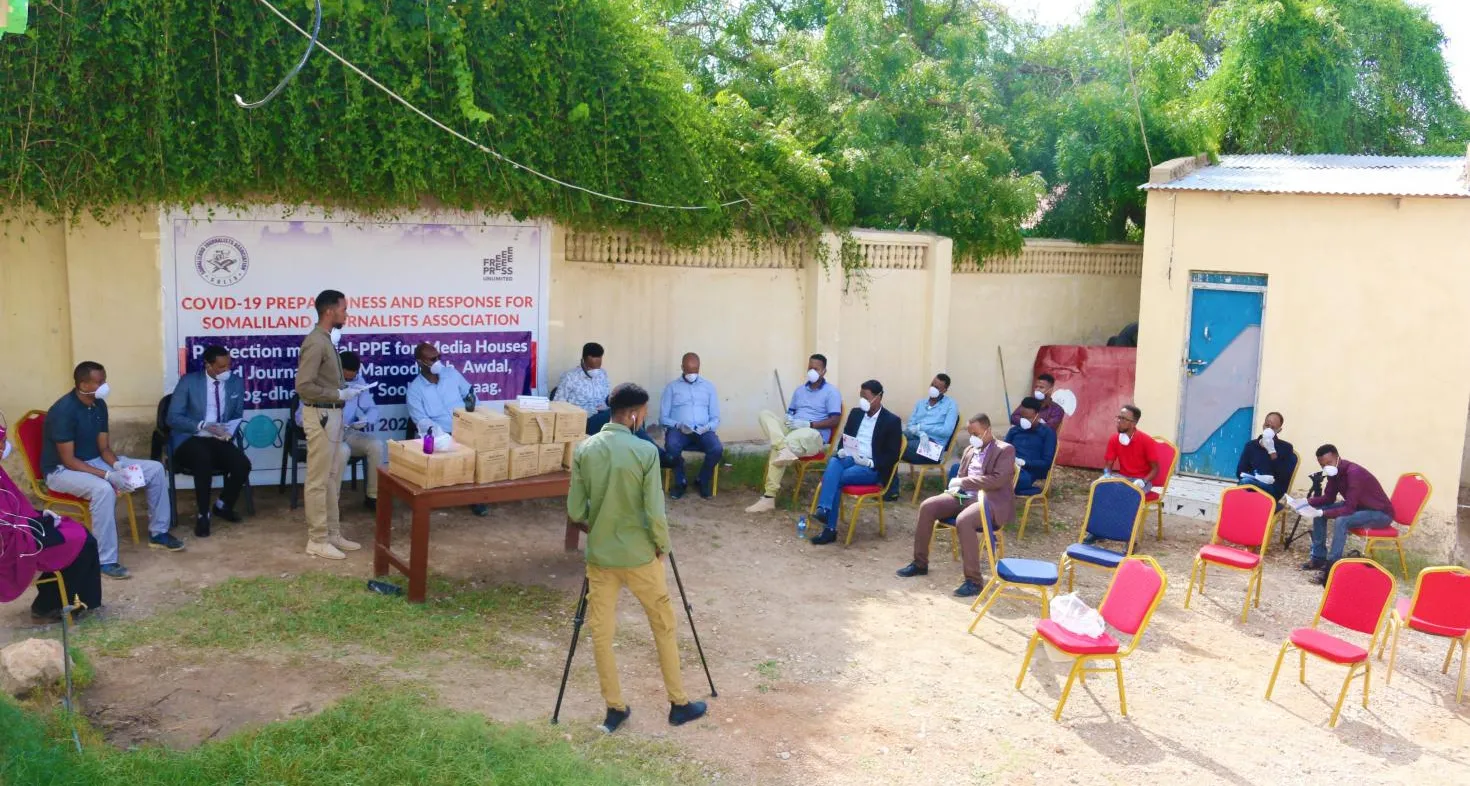
Somali partners provide aid to journalists in need
Ranked 163 out of 180 in the Press Freedom Index, Somalia is already an extremely dangerous country for journalists. The Covid-19 exacerbates that situation, making it even more difficult for journalists to continue bringing reliable information to the public, at a time when it's most needed. Our local partners are making every effort to provide aid to journalists in need.
As of 18 June 2020, Somalia has 2,696 confirmed cases and 88 deaths from Covid-19. The government has taken a number of measures, for example the introduction of a curfew in the capital Mogadishu since 15 April 2020, preventing people from going outside between 8.00 pm and 5.00 am.
According to the United Nations, Somalia faces a ‘triple threat’, namely devastating floods, a locust plague, and the impact of the Covid-19 pandemic. At times like these, accurate and reliable information can be life-saving. It is therefore vital to inform people about what areas are most infected, and how to prevent the spread of the virus. Our local partners in Somalia are working hard to support independent journalists and media organisations.
Training for 70 local journalists
With so much unverified news going around, and with the restrictive measures taken by the government, bringing reliable information in times of Covid-19 is challenging for journalists. Our local partners, with support from Free Press Unlimited, organised two online training days on 4 and 5 June 2020 to support local journalists in their work. The training takes an all-round approach, with workshops on both professional reporting, and on the safety of journalists during the Covid-19 crisis.
The training is aimed at helping journalists navigate through fake news, propaganda and unprecedented scenarios linked to the Covid-19 pandemic. Topics discussed during the training included the importance of using official sources to verify news and to humanize the impact of Covid-19 instead of just reporting numbers.
Kismaayo-based journalist, Hassan Nur, commented: “The workshop was an excellent mix of practical and stimulating advice and ideas on how to handle key issues affecting journalists and their reporting of the Covid-19 crisis.” Because of this success and based on requests from journalists across the country, our partners are already planning to conduct more online training.
Supporting safe reporting
A critical issue for journalists during the Covid-19 crisis is their personal health and well-being. Many journalists expose themselves to the threat of infection during the performance of their work because they do not have access to adequate protection material. Our local partner Media Association of Puntland, distributed 116 boxes of face masks, 290 bottles of hand sanitizer and 174 boxes of hand gloves to 300 journalists dispersed over nine districts in the Puntland region.
Podcast: Together for reliable information
Episode #8: Journalism during Covid-19 in Somalia and Ethiopia. As a part of the campaign ‘Together for reliable information’ we are producing a series of podcasts to highlight the inspiring initiatives from our partners all over the world to keep bringing reliable information to the public. In every podcast one of our programme coordinators will talk about the latest news from our partners on the frontline. In this podcast we speak with Davide Soto Naranjo, Programme Coordinator of Somalia and Ethiopia at Free Press Unlimited. He talks about how these two neighbouring, but very different countries respond to the Covid-19 crisis and how it affects the media.
Photo: Solja
